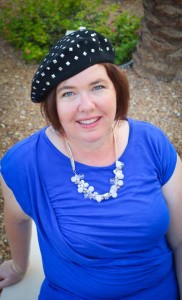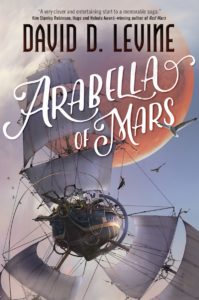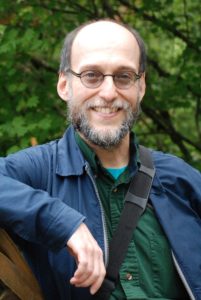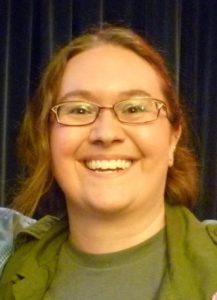“Come in, — come in! and know me better, man!” -Charles Dickens, A Christmas Carol
We’d love for you, our wonderful readers, to get to know us better. That’s why, each month, Kristin Luna will interview a member of The Fictorians. We’ll learn more about each member, such as their writing processes, their work, where they live, and what they prefer to drink on a warm summer’s day. We hope you enjoy this monthly installment of Meet the Fictorians.
Meet the Fictorians:
Colette Black
Kristin Luna (KL): Hi Colette! How are you doing and what are you drinking?
Colette Black (CB): Other than a sudden case of pink eye–how do we contract stuff like that?–I’m doing great. I’m not currently drinking anything, but my most recent drink was almond milk. I’m lactose sensitive, so…
KL: I love almond milk! I’m also lactose sensitive, as my husband would surely attest to. If you don’t mind me sharing, you live in Arizona. Does the landscape influence your writing at all?
CB: On occasion. I’ve set a couple of short stories in Arizona, such as Watchboy, using my knowledge of the geography and climate. I’ve also used that knowledge in other books, such as Mwalgi Justice, when writing about a dry, desert climate. I wouldn’t say that the landscape encourages me to write any more or less in that direction, though. I also spent time in the Philippines, and set a short story there called “Eden’s Hell.” At the same time, there are places I’ve never been, like India, but I did a large amount of research and set the majority of my story, “Beneath the Skin” in that country. Of course, then I had someone who had lived there look over the story for me.
KL: When is your most ideal time of day to write? Do you have a schedule or routine that you like to follow?
CB: My best time to write is evenings, but that’s also usually the best time to spend with my teenagers. It’s a balancing act, and although mornings aren’t my best time to write, I’ve found that I can often make it work and so that’s usually when I get the most done.
KL: You have three books out right now in your Mankind’s Redemption Series: Noble Ark, Desolation, and Mwalgi Justice. Is it a trilogy or can we expect more books in the series?
CB: The Mankind’s Redemption Series will eventually have six books. No more and no less. The fourth book, Lenfay’s Hell, will release in 2017. It’s a wild ride trying to keep humans alive on an aggressive alien planet. That challenge only becomes more important when Lar and Aline discover secrets pertaining to both their races that nobody else knows about.
KL: I noticed that you also have a short story collection out called The Black Side. Which is more difficult: short fiction or long fiction?
CB: For me, short fiction. My brain thinks in over-arching plots and subplots. Skimming that down into an interesting, 3000-5000 word story, which is what most magazines prefer, is one of my greatest challenges. I still do it, because it’s good for honing a myriad of skills.
KL: What writing projects are you working on right now?
CB: I’m focused on Lenfay’s Hell, but I’m also spending time on the second book in The Number Prophecy, Thirteen. I think I’m even more excited about that than Lenfay’s Hell, which is saying something. I also have a couple of short stories that I hope to have published soon.
KL: Have you been doing any interesting research lately for any of your writing projects? Care to give us a little taste?
CB: I found a fascinating story from the 1500’s about a knight that supposedly killed a dragon in the Slavic region of Europe. Using the backstory from one of my other projects that hasn’t released yet, called Moon Shadows, I created a courtship between a half-Mongol peasant and a Ukrainian princess. It’s a 16th century urban fantasy with local shapeshifters, wind dragons from Asia, and the creation of a new power. I can’t wait for this short to be picked up because it’s one of my favorites. Keep your eyes out for “Swan’s Petition”
KL: That sounds great! When did you join the Fictorians?
CB: I actually helped organize the Fictorians. After the first Superstars Writing Seminar, I suggested to the goal-keeping group we’d formed that we put together a group blog. Evan Braun and some others took the reins and started putting the plan in motion; people like Matthew Jones understood and incorporated the technical side, and we started with only 2-3 posts per week, each of us posting about twice per month. It fills me with joy and wonder to see what it has become. We’re more professional, we fill every month with unique and fascinating posts, and we incorporate a multitude of guest posts from talented authors on a regular basis. It’s amazing.
KL: And here we are today! What writing advice have you received that you would pass on to other writers?
CB: BICFOK. No, it’s not a swear word, though sometimes it feels like one. It means Butt In Chair, Fingers On Keyboard. We have to write, keep writing, and write when we may not feel like it. Also, remember to read…A LOT. We can’t improve our writing if we’re not reading.
KL: And finally, what has been your favorite Fictorians post that you’ve written so far?
CB: That’s tough. I’ve written a LOT of posts. In the end, though it’s short, I’d have to say my Gratitude Post is my favorite. If it wasn’t for my family, their encouragement, and their patience, I could have never written the stories that I did. My family is everything to me.
***
If you have any questions for Colette, please leave a comment below. Thank you for reading!




